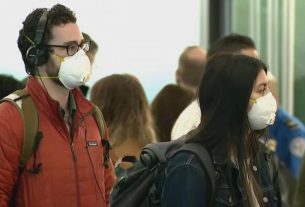A new HIV vaccine has raised new hopes among health experts as it has been proved to be 97 percent effective in triggering a rare set of immune cells that play a vital role in killing the virus. Scientists have said that the vaccine has shown 97 percent effectiveness in the first human trial. They have used a new method in the development of the vaccine to target the fast replicating human immunodeficiency virus (HIV). The virus has been eluding many vaccines in the past as it hits parts of the immune system directly and it is quite capable of evading other immune defenses as well. This new HIV vaccine has been made by scientists from Scripps Research in San Diego and by a non-profit international AIDS Vaccine Initiative (IAVI). Experts have said that the vaccine is being tested in its phase 1 clinical trials and it has been given to only 48 people so far. The vaccine has been garnering a lot of attention these days as Scripps and IAVI have joined hands with Moderna to develop an mRNA version of the vaccine just like Moderna’s COVID19 vaccine. As per the experts, this step will lead to faster accessibility of the vaccine.
Dr. William Schief, who is an immunologist at Scripps, has said that the team has joined hands with many collaborators. He has said that in the trial, they have been able to show that a vaccine can be made that can activate rare immune cells that have meticulous properties. Such targeted stimulation can be very effective in humans, said the expert. Dr. William Schief has said that he believes that the mRNA technology will be crucial in developing an HIV vaccine and it is quite essential for developing many other vaccines for other viruses as well.
Experts have said that long after the discovery of HIV that leads to AIDS, HIV vaccine research has commenced in the 1980s. Nevertheless, the progress has been quite slow with only one two-vaccine combo that has been examined in the Thai RV144 trial, which has been shown to have an impact. The findings of this trial have been released in 2009. It has led to a 31 percent reduction in the rate of infection due to the combination of vaccines. Nevertheless, the effectiveness of the vaccine combo has been too less for sending it for approval, but the experts have continued to study what has an effect and what does not have an effect on the vaccine combination. A follow-up analysis of this research has shown that the limited protection provided by this vaccine combo has faded away after nearly a year. Scientists have said that it is hard to target the virus through vaccines as it keeps evading antibody response of the body.
Vaccines usually work by introducing a dead or harmless virus to the immune system that allows antibodies to develop without the threat of the ailment. In the case of HIV, it keeps mutating quickly to evade antibodies and an effective vaccine has not been developed yet for the dreaded virus. The new tool aims at a rare set of antibodies that are broadly known as neutralizing antibodies. These antibodies can attach to the spike protein of HIV that is a part of the virus, which is not different in other strains of the virus. The spike protein is the part that is used by the virus to infect the human body; therefore, it cannot change further without locking the virus out.
Dr. William Schief has said that neutralizing antibodies are secreted by only a few or about one in every 1 million of the B cells of the immune systems. The B cells are responsible for producing antibodies. He has said that there is a need to prime the right kind of B cells to obtain the correct antibody response. The mRNA technology aims at this particular set of B cells with a vaccine compound that is known as eOD-GT8 60mer. In the human trial, 48 participants have been given either the vaccine or a placebo.
Experts have observed whether the vaccine has been safe and the participants, who have received the vaccine, have been able to produce neutralizing antibodies rather than testing whether the vaccine has been able to keep HIV infection at bay. They have compared these outcomes with the control group that has been given a placebo. Experts have noted the desired antibodies have been seen in 97 percent of people who have been given the vaccine. The findings of the study have been presented at the International AIDS Society HIV Research for Prevention Virtual Conference.

Carolyn is a technology graduate and loves to write about anything related to technology as well as writes in others sectors. Carolyn is a professional writer with over 7 years of experience. Initially starting off as a programmer, Carolyn decided to combine her knowledge about technology and writing and that’s how she joined Reporter Expert.


